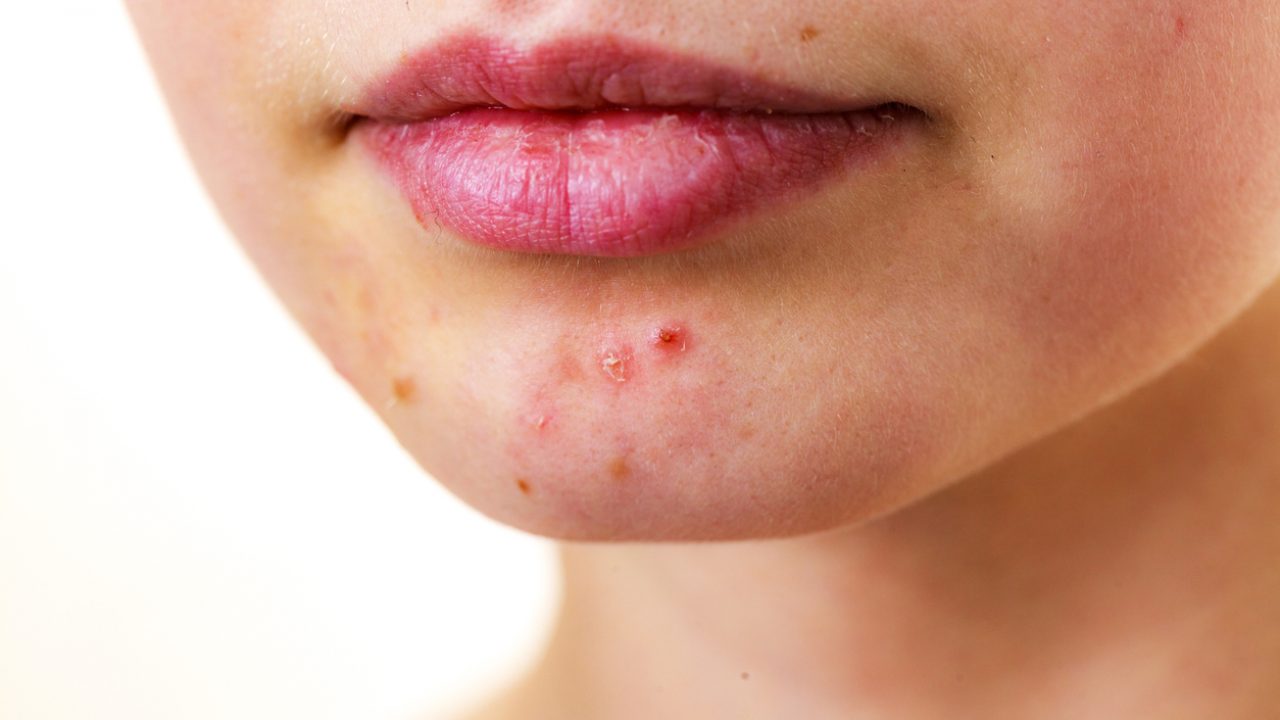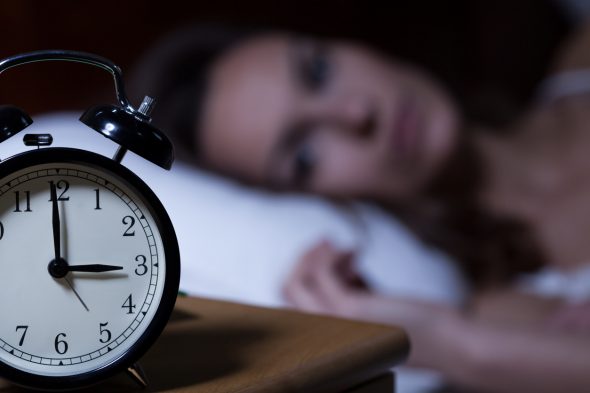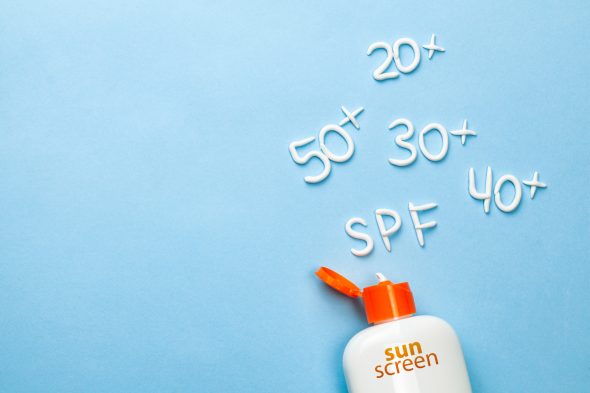
We’re wearing much less makeup, spending no time at all on dirty trains and tubes or surrounded by car fumes, and we’re largely getting more sleep, yet since the start of the lockdown, our skin is breaking out much more than it was before.
Having spoken to friends and family, it turns out we’re not alone.
Whether it’s the added pressure and stress that comes from trying to work from home with kids in tow; drinking more alcohol; seeking solace in junk food or a lack of Vitamin D, our bodies – and, hence, our skin – are going through a whole host of changes. That doesn’t mean you have to put up with it though.
READ NEXT: How to get rid of spots fast
As we explain in our What is acne? guide, blemishes, spots and acne are caused when the hair follicles in our skin become clogged. These follicles produce an oily substance called sebum and, when released at a balanced level, it keeps hair and skin moisturised. However, if anything disrupts this balance, it can lead to oily skin and cause your face to break out as your pores become clogged up with dead skin cells, dirt, and particularly bacteria.
So what throws this balance out of whack?
The reason acne and spots are more common during puberty is because of changes in hormone levels. The same applies for during pregnancy, around the time of your period, during the menopause and at times of stress. Times like many of us are experiencing now during lockdown.
As we get stressed, our bodies release a hormone called cortisol. When regulated, cortisol doesn’t cause problems but under periods of intense pressure or stress, our bodies end up producing too much.
READ NEXT: What causes acne?
This causes a metabolic imbalance in the body and, in women particularly, can lead to a drop in oestrogen (the female hormone). With more androgen – the male hormone – left in our system, our body gets confused and increases the amount of sebum we produce. This causes our pores to swell, generating our body’s natural inflammatory response and it causes spots.
An increase in cortisol is also linked to disrupted sleeping patterns.
 Getty Images/iStockphoto
Getty Images/iStockphoto If our regular circadian rhythm is disrupted, it throws every stage out of balance and leads to breakouts, wrinkles, fine lines, and more
Whether it’s the stress of the lockdown causing you sleepless nights, your restless children waking up throughout the night, or, conversely, you’re sleeping more than you were before, the changes in sleeping habits and patterns can cause your skin to break out. In addition to the increase in cortisol, it’s while we sleep that our body recovers from the day. Our cells are renewed, our hormones balance out and our skin temperature drops.
In particular, when we first drift off, our body produces the growth hormone. As we age, this hormone is crucial in maintaining youthful, plump skin. If we don’t get enough sleep, and this hormone production is hindered, our skin looks dull and sallow and it can cause dark circles, eye bags and other signs of premature ageing.
After this stage of sleep, we enter the melatonin stage. Melatonin is a hormone that regulates our circadian rhythms, while also acting as an antioxidant that helps protect the skin from damaging free radicals. Then, when we enter REM, our temperature drops, our muscles relax, cortisol levels lower and we enter recovery mode.
If our regular circadian rhythm is disrupted, it throws every stage out of balance and leads to breakouts, wrinkles, fine lines, and more.
 iStock
iStock With the lockdown confining us to our homes, our only chance of getting access to natural Vitamin D is during our daily exercise. Yet spending just an hour outside is a major departure from what our bodies are used to and this drop in nutrients can cause our skin to become dry and dull. Sunlight, and in particular UV light (in moderation) has also been found to help improve acne.
“Sun exposure is our best source of getting Vitamin D”, Dr Ross Perry, medical Director of CosmedicsUK told mamabella, “It can help to improve adult acne, psoriasis, and rosacea. Sun exposure is also good for our mental health and improving our mood and makes us feel happier.”
Vitamin D deficiency is common with around 1 in 5 being affected in the UK, more so in winter, and the most common symptoms are general tiredness, aches and pains and not feeling right, continued Dr Perry.
The NHS adds: “Most people can make enough Vitamin D from being out in the sun daily for short periods with their forearms, hands or lower legs uncovered and without sunscreen from late March or early April to the end of September, especially from 11am to 3pm…[yet] your body can’t make Vitamin D if you’re sitting indoors by a sunny window because UVB rays – the ones your body needs to make Vitamin D – can’t get through the glass.”
You can read more about UV rays and their impact on skin in our guide to SPF.
If you’re anything like us, you’ve found yourself indulging in a glass of wine more regularly than you did before the lockdown began. Data shows that sales of alcohol rose by 31.4% in March, which means an extra £300m was spent on booze in the UK. This took the monthly total to around £1.2 billion.
When it comes to our skin, alcohol can affect the way oxygen and other nutrients travel through our bodies and to our skin. This so-called oxidative stress can make breakouts worse, even if it’s not directly to blame. Alcohol can also destroy, or damage, your body’s protective cells that keep your immune system in check. This can make your body more susceptible to infection.
“Drinking alcohol regularly is one of the worst things you can do to you skin,” Dr Perry continued. “Its full of toxins which deprive the skin of vital vitamins and nutrients, it can cause premature ageing giving the appearance of dehydrated skin; and drinking lowers antioxidant defences in your skin.
“As a result, your skin appears more dry, making lines and wrinkles appear more visible due to the lack of fluid/water on the skin. Too much booze can also lead to sagging skin, discolouration and enlarged pores.”
If you’ve not increased your alcohol consumption, you may have found yourself eating more. And not always eating food that is good for you. While junk food is not the cause of breakouts, the changes it elicits on your body and blood sugar levels can impact hormone levels and sleeping patterns, and these then can lead to spots and redness.
It’s easier said than done to get more sleep, stop worrying and eat better but here are some tips that will at least improve the situation, even if they don’t completely solve the problem.
1. Develop a skincare routine
When your skin is breaking out, the best thing to do is to stick to a simple skincare routine. Try not to introduce anything drastically different than what you use already, or introduce multiple new products at once. If stress is making your skin more oily, have a look at our best moisturiser for oily skin and discover our other skincare recommendations in our best skincare guide. We’ve also explained how to get rid of spots fast using a clever makeup tip.
If you’re struggling to make time to fit in a skincare routine, or can’t afford to, we’ve outlined the best overnight hair masks, face masks and foot treatments that won’t break the bank.
You can also treat yourself to the best sheet mask or best face mask. The time spent chilling while the mask gets to work will also help with cortisol levels.
Dr Perry recommends an at-home facial steam because it stop pores clogging, prevents excess oil forming, and it’s a great way to de-stress. You can do this simply by placing your head, covered in a towel, over a bowl of boiling water. He also advises that you exfoliate a couple of times a week to get rid of dead skin cells and bacteria, and make homemade face masks with cupboard ingredients. Good ideas for acne include honey, avocado, and oatmeal.
2. Eat a more balanced diet
Keeping an eye on sugar levels and eating fatty foods in moderation can help manage the spike in blood sugar levels and hormone changes. Foods that have been linked to helping to stabilise cortisol levels include dark chocolate, bananas, pears, green tea and water.
“Try to eat healthily at home even though the temptation of ‘junk’ food is much more accessible when cupboards are fit to burst,” said Dr Perry. “Snack on fruit and crunchy veg rather than reaching for high-salt and sugary foods which can play havoc with our skin.
“If you eat a balanced diet and lead a healthy lifestyle then you shouldn’t be vitamin deficient, so getting the right nutrients in your body is important to be able to fight off illnesses and infection in the body.”
3. Drink more water and less alcohol
This is a given, and should be a relatively easy change to make. Staying hydrated keeps your body on an even keel, reduces cortisol, clears out toxins and refreshes your complexion, and you should be aiming for 2 litres at day.
Try to limit your alcohol use, as well. “As soon as you stop drinking the skin starts to regenerate in as little as an hour as your body starts to eliminate the toxins,” explained Dr Perry. “After just a couple of days Rosacea won’t seem quite as bad but it’s really after seven days when you start to see real signs of improvement. Skin looks less dry, the under eye area appears less puffy, and conditions such as dandruff, eczema, and rosacea begin to improve.”
4. Trying meditation, yoga or take up a hobby
Meditation and simple breathing exercises can help relax your body and lower cortisol levels. If this doesn’t appeal, try taking up a hobby that focus your attention and that isn’t related to work, your partner, your kids or your house. LEGO and colouring books are relatively cheap, simple hobbies that don’t take up too much brain power.
5. Laugh
When we’re feeling stressed, we might not feel like socialising or having fun – albeit virtually at the moment – yet this is one of the easiest and most fun ways to reduce cortisol. Phone friends, watch comedies, listen to funny podcasts. Anything that lifts your spirits will help improve cortisol levels. This can also help lower blood pressure and boost your immune system.
6. Exercise
It may sound cliché, but getting those endorphins pumping can have a major impact on cortisol levels as well as your overall mood. Even if it’s just doing 30 minutes of Joe Wicks’ PE classes. Get your heart racing and your skin will reap the benefits.
7. Supplements
Both fish oil and an Asian herbal supplement called ashwagandha have been shown to help reduce cortisol levels.
You can also buy Vitamin D supplements to help increase the amount of this vital nutrient in your system. What’s more, research has shown that Vitamin D Supplements won’t protect for you from getting the virus if you’re exposed, but it will help to reduce the severity and help aid the recovery process. Just make sure you stick to the recommended dose.
FURTHER READING: The truth about beauty supplements

Victoria is founder and editor-in-chief of mamabella, freelance journalist and Mum. She has a passion for empowering people to feel beautiful whatever their age, size, skin type and budget
